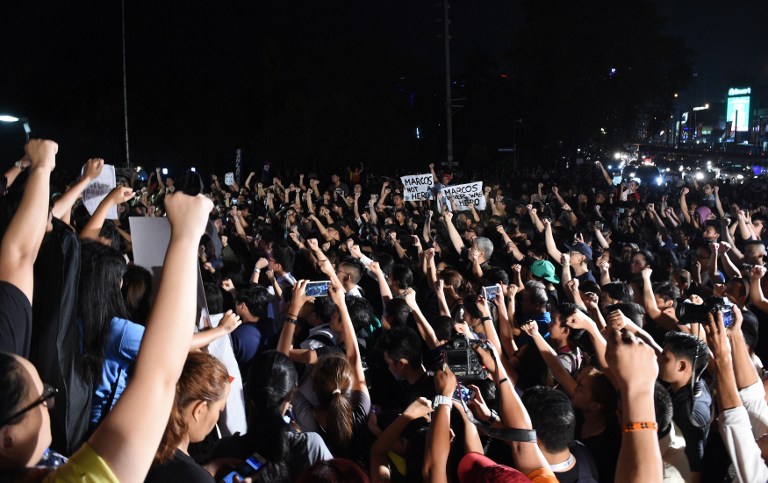
MANILA, Philippines (Eagle News) — President Rodrigo Duterte has ordered the police and military to remain in camps as he allowed anti-Marcos groups to protest on the burial of the late president Ferdinand Marcos at the Libingan ng mga Bayani (LNMB).
Saying his decisions are always guided by the common good and the general welfare of the people, the President said anti-Marcos groups could freely hold their protests even without a rally permit.
He declared all public places open for the protesters, for “as long as they want”.
“They (military) are restricted to be there in their proper places. We shall also keep a lean number of police personnel. Their role shall be limited to traffic enforcement and the basic policy standards. They are prohibited from carrying long firearms,” Duterte said.
“I will answer for all legal issues there. The purpose is to assure the public peace.”
“I may not agree with what you say but I will protect your right to say it. That is our democracy as your president, you have my word and you have that commitment,” President Duterte said.
The president made this statement after reports that his return from the Asia-Pacific Economic Conference (APEC) meet in Peru would be greeted with protests.
As he welcomed protest actions on Marcos’ burial at the heroes’ cemetery, Duterte said he was willing to step down and relinquish his presidency if groups could answer in the negative his questions.
“Was the late Ferdinand Marcos a president?” and “was he a soldier?” the president asked.
“Never mind about a hero because we are to document something like that. To document heroism requires history. ‘Di madali ‘yan,” he added.








